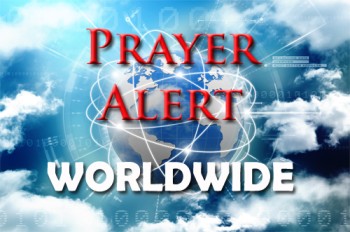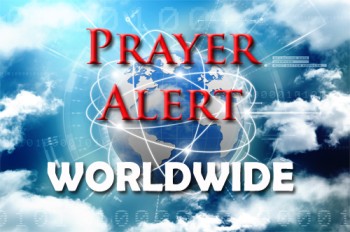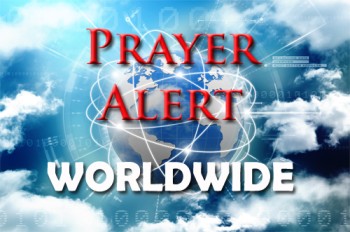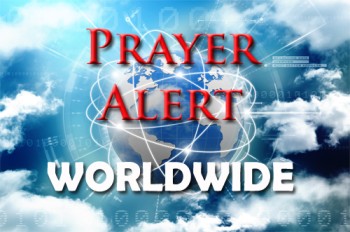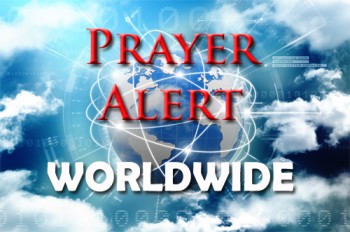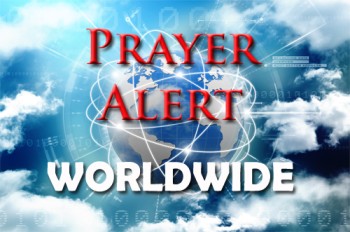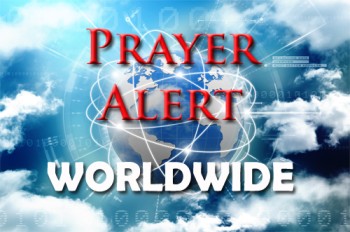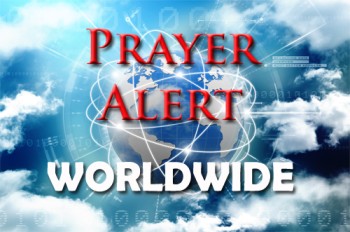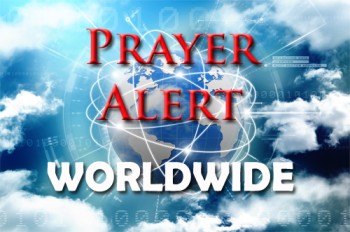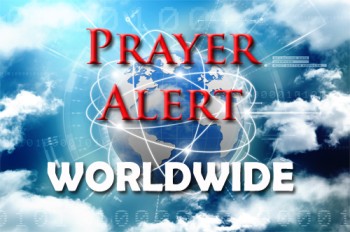Displaying items by tag: Venezuela
Venezuela: president says no to new presidential election
The president of Venezuela’s national assembly, Jorge Rodríguez, has said no presidential election will take place soon, stressing that the government’s priority is national stability. Following the controversial 2024 vote and the abduction of president Nicolás Maduro by the USA, vice president Delcy Rodríguez is now acting president. Authorities say they must rebuild institutions and reach agreement with opposition groups before setting an electoral timetable. A proposed amnesty law aims to release political prisoners and encourage reconciliation, though critics fear repression may continue in other forms. The re-arrest and house arrest of opposition figure Juan Pablo Guanipa has intensified concerns about civil liberties, while opposition leaders question whether genuine political participation will be allowed. The situation reflects a nation seeking normalcy amid deep division, uncertainty, and competing claims of legitimacy, highlighting the fragile path toward democratic stability and lasting reconciliation.
Venezuela: over a hundred political prisoners freed
More than a hundred people held as political prisoners in Venezuela have been freed, according to the human rights group Foro Penal (FP). Among them were FP lawyer Kennedy Tejeda and communications student Juan Francisco Alvarado. Tejeda, a lawyer and human rights defender, had disappeared after visiting detainees in Carabobo state on 2 August 2024 to provide legal assistance, and had since been held in Tocorón prison. While welcoming his return to his family, FP also urged the government to publish official release lists. Acting president Delcy Rodríguez promised to release prisoners detained under Nicolás Maduro following his refusal to concede the 2024 presidential election. She said this marked the beginning of a ‘new political moment’ which allowed greater political and ideological diversity. According to FP, there were 777 political prisoners in Venezuelan jails as of 19 January.
Venezuela / USA: Trump’s increasing pressure on Maduro
On 21 November, weeks of escalating threats, military posturing, and diplomatic tension culminated not in conflict but in a stark phone call in which Donald Trump reportedly issued Nicolás Maduro an ultimatum: leave Venezuela immediately or face the consequences. This shows that Trump is not easing pressure and may be edging closer to military action, despite earlier signs of potential compromise through envoy Richard Grenell’s negotiations which freed US detainees and reopened migrant returns. Analysts note that while advisers like Marco Rubio influence policy, Trump himself has long viewed Venezuela as unfinished business touching on his key concerns - migration, drugs, and China. Trump’s resort to a threatening phone call may in itself be a response to the Venezuelan armed forces’ refusal to buckle before the overwhelming US military presence. Experts warn that a ‘decapitation strike’ targeting Maduro is conceivable, with the justification that he is an illegitimate leader after stealing two elections. Observers say Trump is using intimidation to force concessions while leaving the door open to rapid escalation.
Pacific: airstrikes kill two more in US ‘war on drugs’
The latest US strike on a vessel in the Pacific, ordered by Donald Trump, has drawn renewed condemnation and concern. Two people were killed in what was described as an anti-narcotics operation, bringing the total death toll from similar maritime attacks to at least 67 since September. Despite claims that the vessels targeted were involved in drug trafficking, Washington has yet to provide evidence, prompting accusations of extrajudicial killings. Human rights advocates, including the UN’s Volker Turk, have warned that such actions violate international law and risk killing innocent fishermen. The escalation has drawn condemnation from Venezuela’s president Nicolas Maduro, who regards Trump’s intensified ‘war on drugs’ as a pretext to topple him from power. With an aircraft carrier about to join other US vessels already in the region, the world watches anxiously, fearing that a campaign meant to stop drugs could instead fuel regional instability and human suffering.
Venezuela closes embassy in Norway following the Nobel Peace Prize award
Venezuela has announced it will close its embassies in Norway and Australia, days after opposition leader María Corina Machado was awarded the Nobel Peace Prize. The move, confirmed by Norway’s foreign ministry, came without explanation but follows years of diplomatic tension between Nicolás Maduro’s government and Western nations. Norway expressed regret at the decision, emphasising that the Nobel committee operates independently of its government. Machado, who remains in hiding, received the Peace Prize for her “extraordinary examples of civilian courage’. She dedicated the award to Donald Trump and the ‘suffering people of Venezuela’. Barred from last year’s disputed election, she remains a powerful symbol of resistance to Maduro’s rule. The closures underscore Venezuela’s shifting alliances amid growing isolation from democratic nations. For the White House’s reaction to the Peace Prize award, see
Colombia: president condemns US airstrikes on alleged drug-smuggling boats
Colombian president Gustavo Petro has condemned recent US airstrikes on alleged drug-smuggling boats in the Caribbean, calling them an ‘act of tyranny’ and urging criminal proceedings against US officials if Colombians were killed. The strikes, authorised by Donald Trump and reportedly responsible for 17 deaths this month, target vessels suspected of trafficking fentanyl and other narcotics, especially near Venezuela, Colombia’s neighbour. Legal experts and UN officials have questioned the legality of these actions, describing them as possible extrajudicial executions. Petro argued that deadly force is unnecessary, citing Colombia’s long history of cooperative drug interdictions without fatalities. He stressed that the principle of proportionality is violated ‘if you use anything more than a pistol’. The White House maintains that Trump will use ‘every element of American power’ to combat narcotics. He has designated several drug-trafficking organisations and criminal groups in Mexico and elsewhere in Latin America as terrorist organisations, and the US military has bolstered its forces in the southern Caribbean over the last two months.
Venezuela: Maduro announces mass mobilisation in response to US threats
Nicolás Maduro has announced the mobilisation of more than four million civilian militia fighters, responding to what he describes as escalating threats from the USA. He pledged to arm and activate militias across the country, reinforcing national sovereignty against US actions. His remarks followed the Trump administration’s decision to double its bounty for his arrest to $50 million. While US officials accuse Maduro of leading a cocaine smuggling network known as the Cartel de los Soles, no direct evidence has been publicly presented. Venezuela’s militia system, created under former president Hugo Chávez, claims millions of members, though analysts question the figures. Meanwhile, the US military has dispatched three destroyers to the southern Caribbean as part of an expanded campaign against drug cartels in Latin America. The standoff reflects years of strained relations between Caracas and Washington, marked by sanctions, contested elections, and allegations of corruption.
USA: Trump’s move to deport Venezuelans is blocked
A federal judge has blocked the Trump administration’s attempt to revoke Temporary Protected Status (TPS) for 600,000 Venezuelans living in the USA. The administration planned to end protections for 350,000 Venezuelans by 7 April and expedite expiration for another 250,000, potentially deporting them to a nation in crisis. However, district judge Edward Chen ruled that the Biden-era extensions must remain in place, citing racism and legal flaws in the decision made by homeland security secretary Kristi Noem. Chen condemned the use of negative stereotypes and found no evidence linking TPS holders to the criminal threats cited by the administration. He said that data showed Venezuelans under TPS as generally law-abiding, employed, and contributing positively to US society. Chen also criticised the administration’s rationale as lacking evidence and potentially legitimising Venezuela’s authoritarian regime through backchannel negotiations.
Venezuela: opposition leader’s son-in-law kidnapped
Opposition leader Edmundo Gonzalez has reported the kidnapping of his son-in-law, Rafael Tudares, by hooded men in Caracas. He was intercepted while taking his children to school and remains missing. In the July 2024 presidential election, despite pre-election polls favoring Gonzalez, Venezuela’s electoral authority declared Maduro the winner without releasing detailed vote tallies, which fuelled protests across the country. In the crackdown that followed, 23 people were killed and 2,000 detained. Though many detainees have since been released, accusations of human rights abuses, including torture and arbitrary arrests, persist. Gonzalez, exiled in Spain and facing Venezuelan charges of conspiracy and document falsification, continues to challenge Maduro’s legitimacy. The international community remains divided on how to respond: one key question is what Donald Trump’s attitude will be. See
Venezuela: arrest warrant for opposition leader draws international condemnation
Venezuela’s decision to issue an arrest warrant for opposition leader Edmundo Gonzalez Urrutia has sparked international condemnation. Canada, the USA, and Brazil have all criticised Nicolás Maduro for his crackdown on opposition members following a contested presidential election in July. He was declared the winner with 52% of the vote but failed to release vote tallies. The opposition have presented records to back up their claims that Gonzalez won. When he refused to testify in an investigation, a warrant was issued for his arrest. Brazil, once supportive of Venezuela, expressed concerns and warned that his detention would be seen as politically motivated. The USA, long critical of Maduro, accused him of extreme measures to retain power. Meanwhile, Human Rights Watch has accused armed groups of killing 23 protesters after Maduro’s victory: see.
